ROWMAN & LITTLEFIELD PUBLISHERS, INC.
Published in the United States of America
by Rowman & Littlefield Publishers, Inc.
4720 Boston Way, Lanham, Maryland 20706
http://www.rowmanlittlefield.com
12 Hids Copse Road
Cumnor Hill, Oxford OX2 9JJ, England
Copyright 2000 by Rowman & Littlefield Publishers, Inc.
All rights reserved. No part of this publication may be reproduced, stored in a retrieval system, or transmitted in any form or by any means, electronic, mechanical, photocopying, recording, or otherwise, without the prior permission of the publisher.
British Library Cataloging in Publication Information Available
Library of Congress Cataloging-in-Publication Data
Civil society before democracy: lessons from nineteenth-century Europe / edited by Nancy Bermeo and Philip Nord.
p. cm.
Includes bibliographical references and index.
9780742573628
1. Civil societyEuropeHistory19th century. 2. DemocracyEuropeHistory19th century. 3. EuropePolitics and government19th century. I. Bermeo, Nancy Gina, 1951-II. Nord, Philip G., 1950-
JC337 .C553 2000
320.9409034dc21
00-038268
Printed in the United States of America
 The paper used in this publication meets the minimum requirements of American National Standard for Information SciencesPermanence of Paper for Printed Library Materials, ANSI/NISO Z39.48-1992.
The paper used in this publication meets the minimum requirements of American National Standard for Information SciencesPermanence of Paper for Printed Library Materials, ANSI/NISO Z39.48-1992.
To Eleanor Bermeo, who taught me all about civility.
Nancy Bermeo
To Arno Mayer and Robert Paxton, who taught me that politics and history do mix.
Philip Nord
ACKNOWLEDGMENTS
A first thanks is owed to the Social Science Research Councilto Peter Hall, Peter Lange, and Kent Worcester in particularwhich supplied the seed money that got this project off the ground. The Council for European Studies in New York and its executive director Ioannis Sinanoglou came to our aid at a critical moment. Additional funding was provided by the Luso-American Development Foundation and, closer to home, by a trio of Princeton bodies: the Council on Regional Studies, the Committee for European Studies, and the Center of International Studies. We are grateful to Rui Machete, Gil Rozman, and Ezra Suleiman who made these grants possible.
The present volume grew out of a pair of conferences that met at Princeton. We are indebted to a number of colleagues who helped to organize these events or participated in them: Douglas Chalmers, Gerhard Haupt, Kenneth Maxwell, Philippe Schmitter, and Mark Von Hagen. Portions of this manuscript were read by Sheri Berman, Jrgen Kocka, Atul Kohli, Steven Kotkin, Arno Mayer, Frank Trentmann, Hans-Ulrich Wehler, and Deborah Yashar. We are appreciative of their efforts to save us from embarrassment.
SELECTIVE CHRONOLOGY OF NINETEENTH-CENTURY EVENTS
| 1815 | Defeat of Napoleon at Waterloo |
| Congress of Vienna |
| Formation of the United Kingdom of the Netherlands |
| 1825 | Decembrist uprising in Russia |
| 182555 | Reign of Nicholas I of Russia |
| 1830 | Revolution in France |
| Belgian independence from United Kingdom of the |
| Netherlands |
| 1832 | First suffrage reform act in Great Britain |
| 1834 | Constitutional monarchy in Portugal |
| 1847 | Parliamentary government in Belgium |
| 1848 | Revolutions in France, the Austrian empire, the German states, and the Italian states |
| 1851 | Coup dtat of Louis-Napoleon Bonaparte in France |
| 185456 | Crimean War |
| 185961 | Founding of the Kingdom of Italy |
| 186164 | Great Reforms in Russia |
| 1867 | Second suffrage reform act in Great Britain |
| 1868 | Parliamentary government in the Netherlands |
| 1870 | Rome incorporated into the Kingdom of Italy |
| Fall of the Second Empire in France; beginning of the Third Republic |
| 1871 | Founding of the united German Reich with universal manhood suffrage at the national level |
| 1876 | Republican Party founded in Portugal |
| 1878 | Near universal manhood suffrage introduced in Portugal |
| 187890 | Anti-Socialist laws in Germany |
| 1879 | Founding of Calvinist Anti-Revolutionary Party in the Netherlands |
| 1882 | Suffrage extension in Italy |
| 1884 | Trade unions legalized in France Third suffrage reform act in Great Britain Newly formed Catholic Party wins electoral majority in Belgium |
| 1886 | Founding of the Pan-German League |
| 1888 | First Calvinist/Catholic coalition government in the Netherlands |
| 1891 | Legal recognition in Portugal of the right to associate |
| 1892 | Party of Italian Workers (later the PSI) founded |
| 18921914 | Giovanni Giolitti serves intermittent terms as prime minister of Italy |
| 1893 | General strike in Belgium, followed by introduction of universal manhood suffrage with plural voting |
| 1898 | General Pelloux imposed as prime minister of Italy by royal fiat |
| 1901 | Associations Law in France |
| 1905 | Revolution in Russia |
| 1906 | First meeting of State Duma (parliament) in Russia |
| 1908 | Imperial Associations Law in Germany |
| 1910 | Founding of First Republic in Portugal |
| 1912 | Universal manhood suffrage in Italy |
| 1914 | Austrian Reichstag prorogued by Emperor Franz-Joseph Outbreak of First World War |
| 1917 | Revolution in Russia Universal manhood suffrage in the Netherlands |
| 191819 | Revolution in Germany |
| 1919 | Universal manhood suffrage in Belgium |
| 1926 | Portuguese Republic overthrown and Salazar dictatorship established |
INTRODUCTION
Philip Nord
R ecent decades have witnessed a general, if perhaps no more than momentary, breakdown of authoritarian government in the Western world. The retreat began in the 1970s in Europes southern tier and spread from there to Latin America before achieving a spectacular denouement in the velvet revolutions of the former East bloc. Dictatorshipsmilitary and civilian, right-wing and communistfound themselves displaced by new regimes brandishing promises of freedom and the good life. This wave of democratic transitions was heralded by many participants as a triumph of society over the state and prompted among social scientists a rash of inquiries into the possible connections between an activist citizenry and the democratic constitution of public life.
These inquiries came in a variety of colors, but two principal tints may be distinguished here. The first, neo-Tocquevillian, lays major stress on a vital associational life as freedoms bulwark against the inevitable intrusions of government. The marketplace in this school of thought is oftentimes celebrated as societys essential helpmate, furnishing it additional breathing room and resources needed to face down the states depredations.

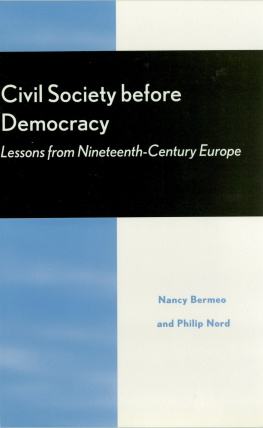
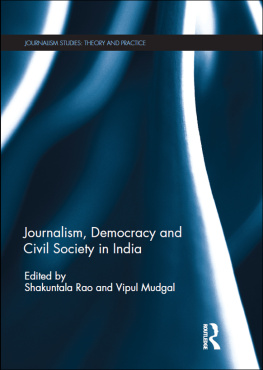


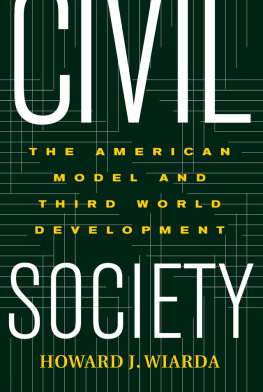
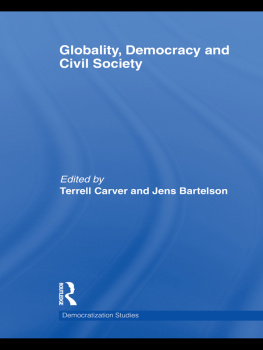


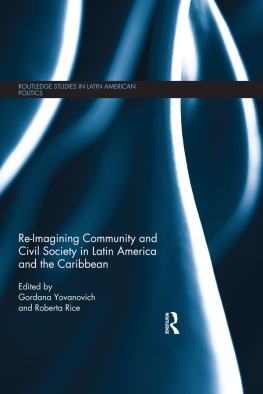



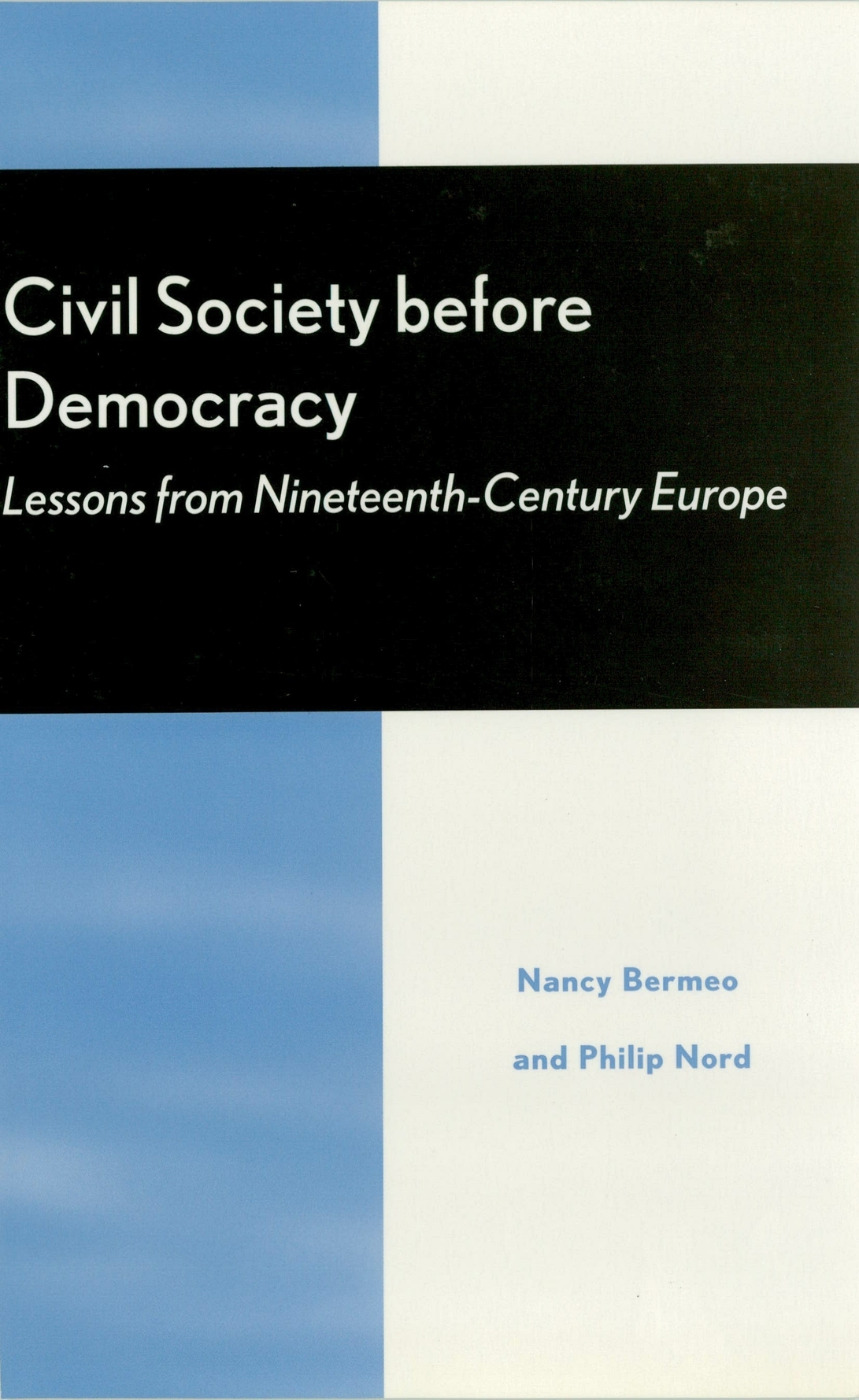
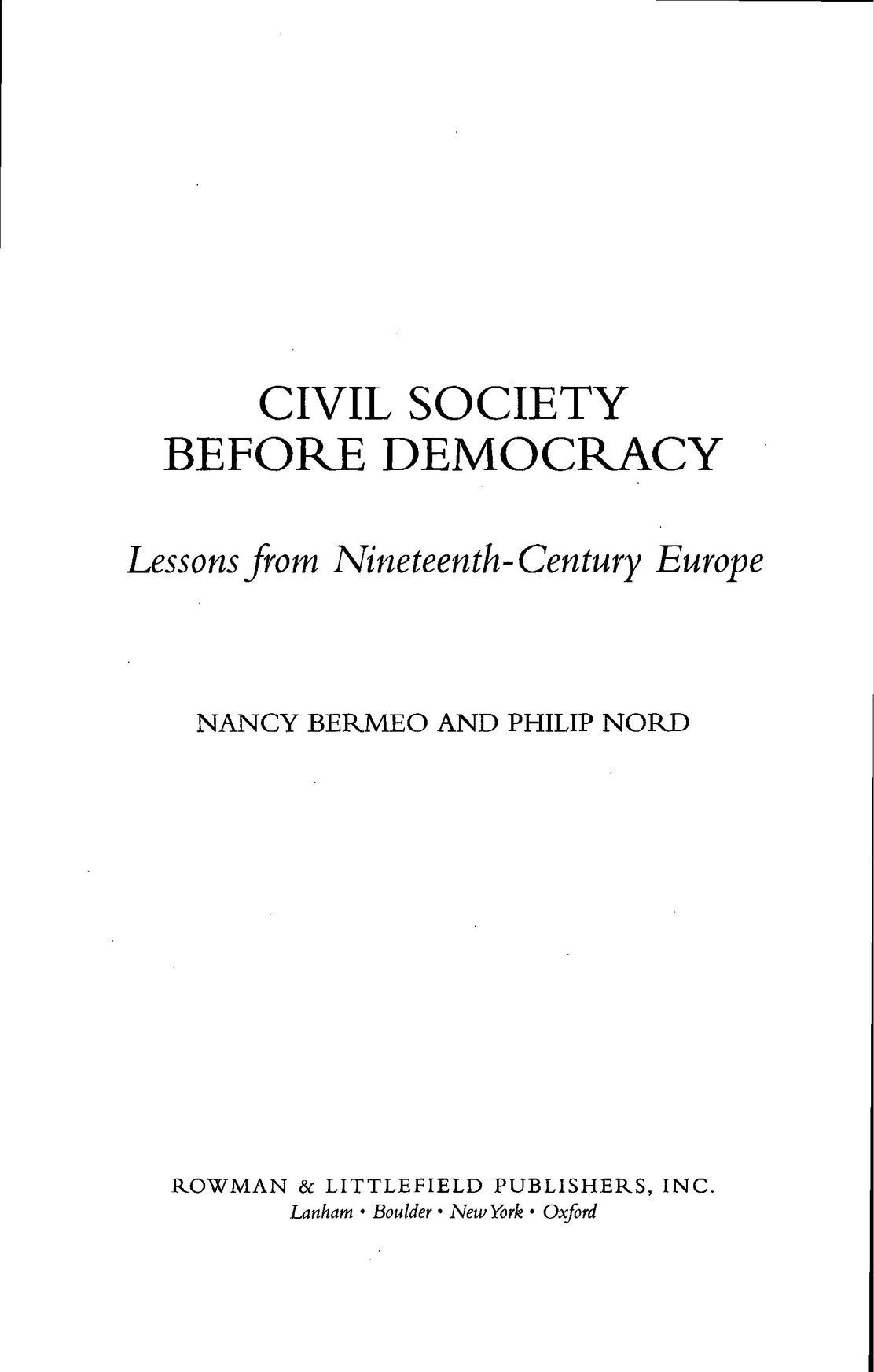
 The paper used in this publication meets the minimum requirements of American National Standard for Information SciencesPermanence of Paper for Printed Library Materials, ANSI/NISO Z39.48-1992.
The paper used in this publication meets the minimum requirements of American National Standard for Information SciencesPermanence of Paper for Printed Library Materials, ANSI/NISO Z39.48-1992.